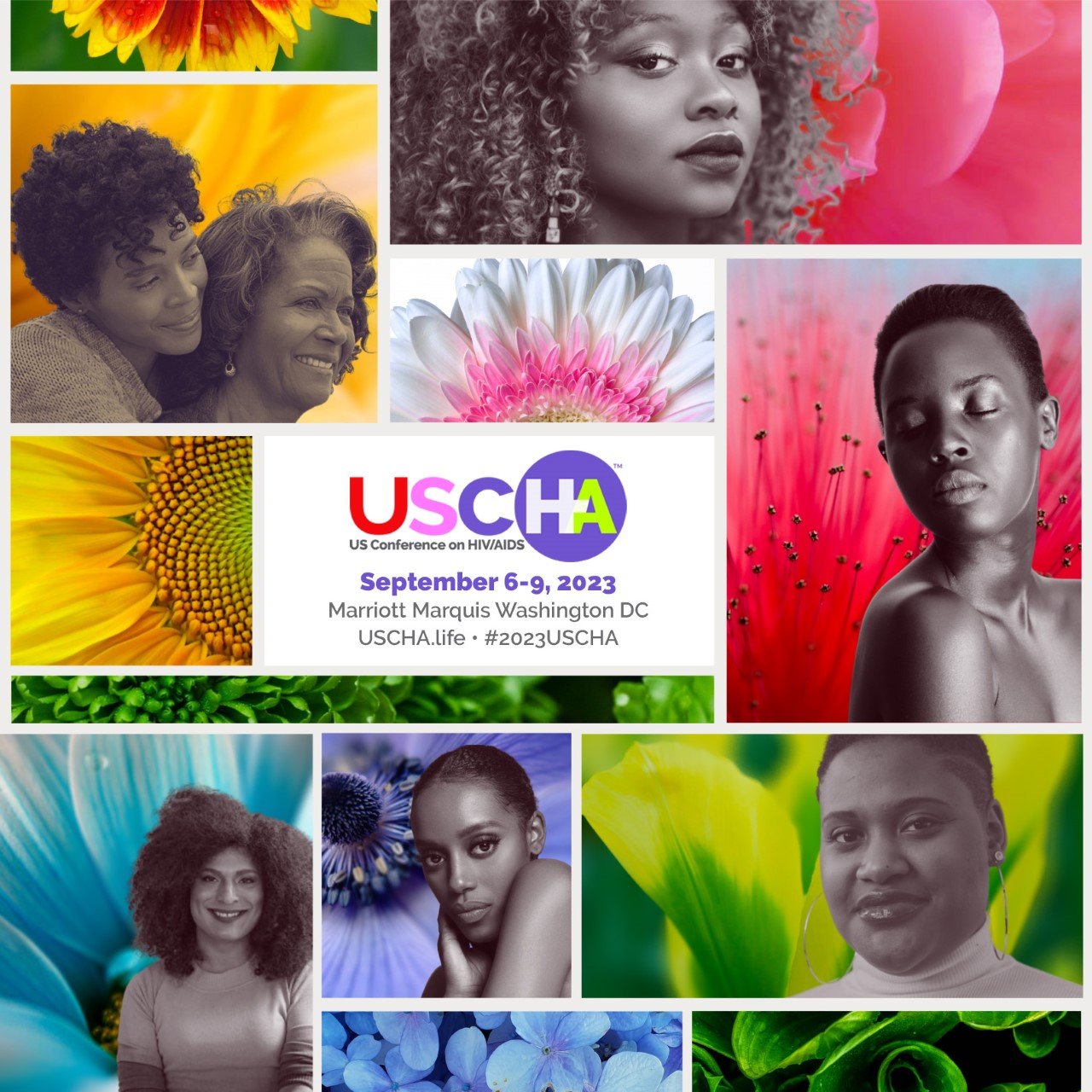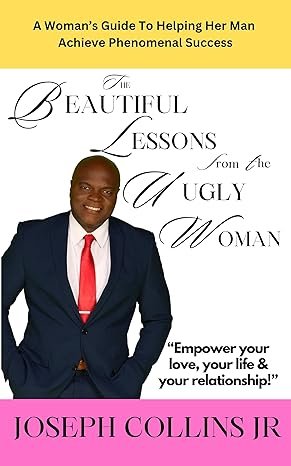Community News
Day 2 – 2023 USCHA: A Love Letter to Black Women
2023 USCHA: A Love Letter to Black Women. When more than a couple of Black women get together, this powerful mechanism for change is created.
Published
2 years agoon

Day 2 – 2023 USCHA: A Love Letter to Black Women. The Ending the HIV Epidemic in the United States (EHE) initiative was launched in 2019. The EHE aims to reduce new HIV infections by 90% by 2030. By implementing key HIV prevention and treatment strategies to achieve healthy equity with all communities while also addressing the epidemic. The EHE initiative encouraged jurisdictions to implement a whole-person approach to HIV prevention and care known as status neutrality. This person-centered approach addresses healthcare gaps and underserved support service needs of people living with or at risk of HIV.
Earlier this week, the 2023 United States Conference on HIV/AIDS (USCHA) was held at the Marriott Marquis in Washington, DC. The theme for this year was “A Love Letter to Black Women.”
Day 2: Thursday, September 7, 2023
The Media and Black Women
New HIV cases are concentrated at the intersection of race and sexual orientation: Black men who have sex with men (MSM) had the highest proportion of new HIV cases, closely followed by Black heterosexual women. HIV continues to disproportionately affect black women. Black women account for more than 50% of new HIV infections in US women. In particular, Black women from marginalized communities are considered to be high priority populations. However, funding and services don’t align. We know that the social determinants are a direction correlation of those outcomes. Still, another variable often overlooked or not considered is the role of the media.
While the media leads with sensationalizing headlines, stereotypical images and narratives alluding to Black women not being concerned or proactive about their healthcare, we know the exact opposite to be true. Black women continue to be objectified and oversexualized, leading society to believe they are the cause of many issues that plague their community, when in fact systemic barriers such as racism, oppression, historical trauma and patriarchy are the root cause.
All Up In Your Mind
2023 USCHA: A Love Letter to Black Women. The “All Up In Your Mind: Examining the Media’s Impact on Sensationalizing Black Women” panel kicked off the second day of the 2023 USCA. This panel addressed issues such as sexual health, social media, and the sensationalization of Black women. The panelists talked about the effects of stereotyping and colorism on Black women. They also discussed misogyny on Black women as a result of a hypersexual media culture. Subtopics included patriarchy and pretty privilege, respectability politics and reclaiming our time, sexual health and self-care, and reclaiming our time.
To sensationalize means to present information in such a way that it is as shocking or exciting as possible. This is often done at the expense of facts or truth.
Conventions of mainstream media industry perpetuates systemic racism and racist imagery for wealth-maximizing purposes. The media does this by depicting Black women in a way that puts forward oppressive ideologies. This leads to pressure to assimilate to a certain body type or image. As a foundational matter, this is a denial of bodily autonomy.
Complex, multidimensional characters are the exception, not the rule. This is a misrepresentation of Black women’s stories.
Black is beautiful and we need to honor and respect Black women in their journey!
Proverbs 18:21
Proverbs 18:21 in the New International Version of the Holy Bible says, “The tongue has the power of life and death, and those who love it will eat its fruit.”
Many people face various forms of oppression and discrimination based on their gender, race, sexual identity, socioeconomic status, or other factors. Often, language reinforces oppression and discrimination. Over time, hearing language that perpetuates stigma, oppression, and discrimination has a negative impact on the health and overall quality of life of people living with HIV.
The session “Proverbs 18:21 – Stigmatizing Language in Sacred Spaces” looked at why language matters in sacred spaces. It investigated methods that faith communities can use to reshape the language used in sermons, promotional materials, and dialogue – both in and out of the pulpit. Attendees also examined how racialized and stigmatizing language assigns negative labels, stereotypes, and judgments to specific groups of people. Furthermore, how such language can contribute to negative outcomes.
She is Glorious
Gilead Sciences presented the second day’s plenary, “Gilead Plenary: In Her We Trust: She is Glorious – A Celebration of Black Womanhood.” Gilead’s mission is to discover, develop, and deliver novel therapeutics for patients suffering from life-threatening diseases.

The HIV epidemic has driven societal progress throughout history with Black women at the forefront. The plenary luncheon celebrated and honored the exceptional leadership of Black women and their ongoing contributions. Through stories and performances, Gilead honored their leadership and amplified their voices.
We Are Survivors!
Gilead Sciences sent a loud and clear message as attendees arrived at the Gilead Sciences plenary. “Survivor” by Destiny’s Child blared on the PA system. The lyrics proudly exclaimed the anthem of HIV survivors, especially Black women:
I’m a survivor. I’m not gon’ give up. I’m not gon’ stop. I’m gon’ work harder. I’m a survivor, I’m gonna make it. I will survive, keep on survivin’.
A survivor is a person who is able to continue living their life successfully despite experiencing difficulties. We are survivors!
Characteristics of a survivor are the ability to dig deep down and find ways to cope during adversity and eventually find the gift that is left behind. During their plenary, this message was further exemplified by the song “Run the World (Girls)” by Beyoncé Knowles-Carter. There are two very notable lines within the lyrics: “Who run the world? Girls!” and “Disrespect us, no they won’t.”
Let’s celebrate the strength and resilience of the black community, and black identity and pride in the face of the adversities of racism and oppression. The Black woman is a living example of the butterfly effect. Every aspect of society feels the ripples of support, impact, and change.
Overall, the central theme of the plenary highlighted how a history of suffering and pain has helped define the black woman today as strong, and this unwavering strength is what it means to be a black woman.
The call to action encouraged, “If they don’t give you a seat at the table, bring your own chair!”
Intimate Partner Violence and HIV Care

PICTURE: Beaten – November 25 is the international day against domestic violence. This photo was taken in Bonn, displaying the work of an artist. PHOTO: COURTESY OF: Unsplash, Published November 25, 2020
Accessing and navigating HIV care services may be difficult for people living with HIV (PLWH) who are victims of intimate partner violence (IPV). Traumas brought on by toxic relationships can influence their willingness to seek specialized care. This population must have access to comprehensive mental health services led by certified IPV counselors who understand the importance of HIV care and retention and are familiar with the lesbian, gay, bisexual, transgender, or queer (LGBTQ) community.
Cultural competence and understanding are required for effective therapeutic support in the field of mental health. Individuals will incorporate the importance of HIV care and medication adherence into their wellness strategy as they gain mental empowerment. The inclusion of this mental health modality is consistent with the principles of the Ending the HIV Epidemic in the United States (EHE) initiative.
The “The Impact of Intimate Partner Violence on HIV Care Access” institute highlighted MarSell Wellness Center‘s trauma informed care (TIC) strategies for breaking down barriers that prevent this marginalized group from accessing much needed HIV care services.
Related URBT News article: No Does Not Mean Go
Fueling the Movement
During the COVID pandemic, the HIV field experienced a significant shift. Many people’s mental health suffered as a result of the constant challenge of team building as a result of high turnover rates, the addition of new members to the field, and balancing the need to sustain motivation.
In the “Fueling the Movement: Shaping the Future of HIV Leadership” panel, presenters from the National Minority AIDS Council‘s (NMAC) Gay Men of Color Fellows and other seasoned advocates discuss how emotions such as frustration and anger can fuel positive change while shaping the future of HIV leadership.
Informed by its members, the Gay Men of Color Fellowship runs a powerful social media campaign. Fellows are trained in biomedical prevention and given social media packages to help them launch their “biomedical prevention influencer” status. The campaigns aim to raise awareness about PrEP, PEP, and TasP among men who have sex with other men. Fellows will also plan Facebook live events and create social media posts based on three themes: (1) biomedical prevention basics, (2) sex, desire, and pleasure, and (3) PrEP, PEP, and treatment adherence.
Panelists worked together to navigate these complex topics, hoping to shed light on how to build up by combining an administrator’s strategic mindset with an activist’s heart.
Race-Based Health Inequities
The workshop “Using a Health Equity Lens to Access Race-Based Health Inequities” concluded Day 2. This workshop guided participants through a 12-step process for increasing a community organization’s or clinic’s capacity to apply a health equity lens to their work. It drew attention to the historical and contemporary impact of structural racism, as well as system-level issues at the root of current health disparities. In each step, participants discussed and planned individually using a 12-step process handout.
The process includes a focus on data, providing guidance on community input, establishing priorities, addressing social determinants of health, and testing new models with data as a guide. This was a hands-on workshop for participants who are in positions to make operational decisions that will assist an organization in addressing health disparities. This workshop will strengthen an organization’s ability to be truly representative of, trusted by, and responsive to the needs of people of color.
Related URBT News articles: Day 1 – 2023 USCHA: A Love Letter to Black Women and HIV/AIDS Leaders Gathered on Capitol Hill to #SaveHIVFunding
DOWNLOAD THE URBT NEWS APP Day 2 – 2023 USCHA: A Love Letter to Black Women
You may like
-


Menopause Parasite Found In 87% Of Women
-


Rev Joe B Hardwick Dead at 93: South LA Icon Leaves Legacy of Faith, Justice, and Leadership
-


Women Executives Are Earning Six Figures, But Are They Treated Like Assistants?
-


Donald Trump and Elon Musk’s Feud Goes Public: What’s Behind the Breakup?
-


Warner Bros. Has Lost Its Way: Joseph Collins Jr. Reflects on the Studio’s Departure from Jack Warner’s Vision
-


Mon Coeur and Billion Oyster Project Host Exclusive NYC Dinner to Launch Eco-Friendly Children’s Capsule Collection


